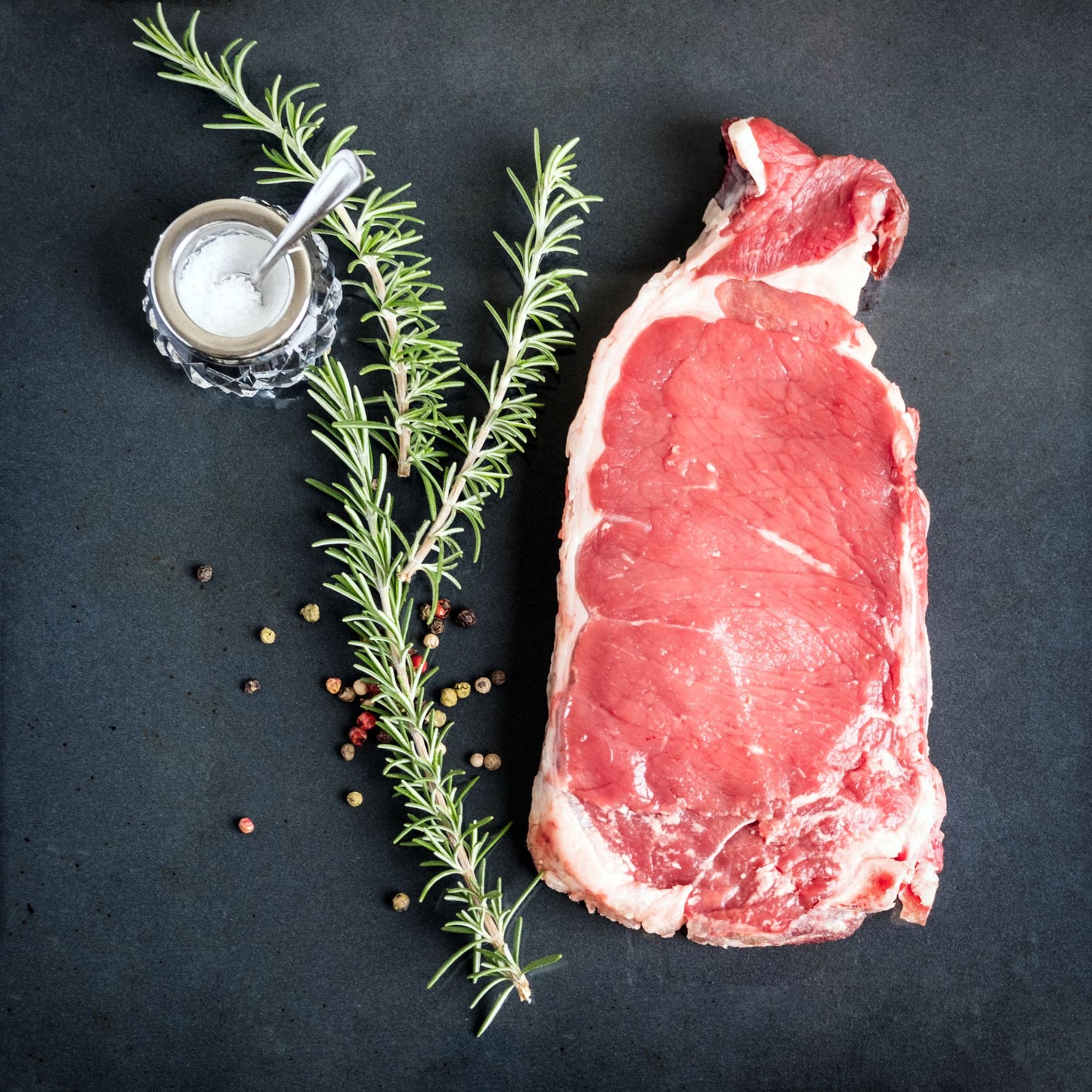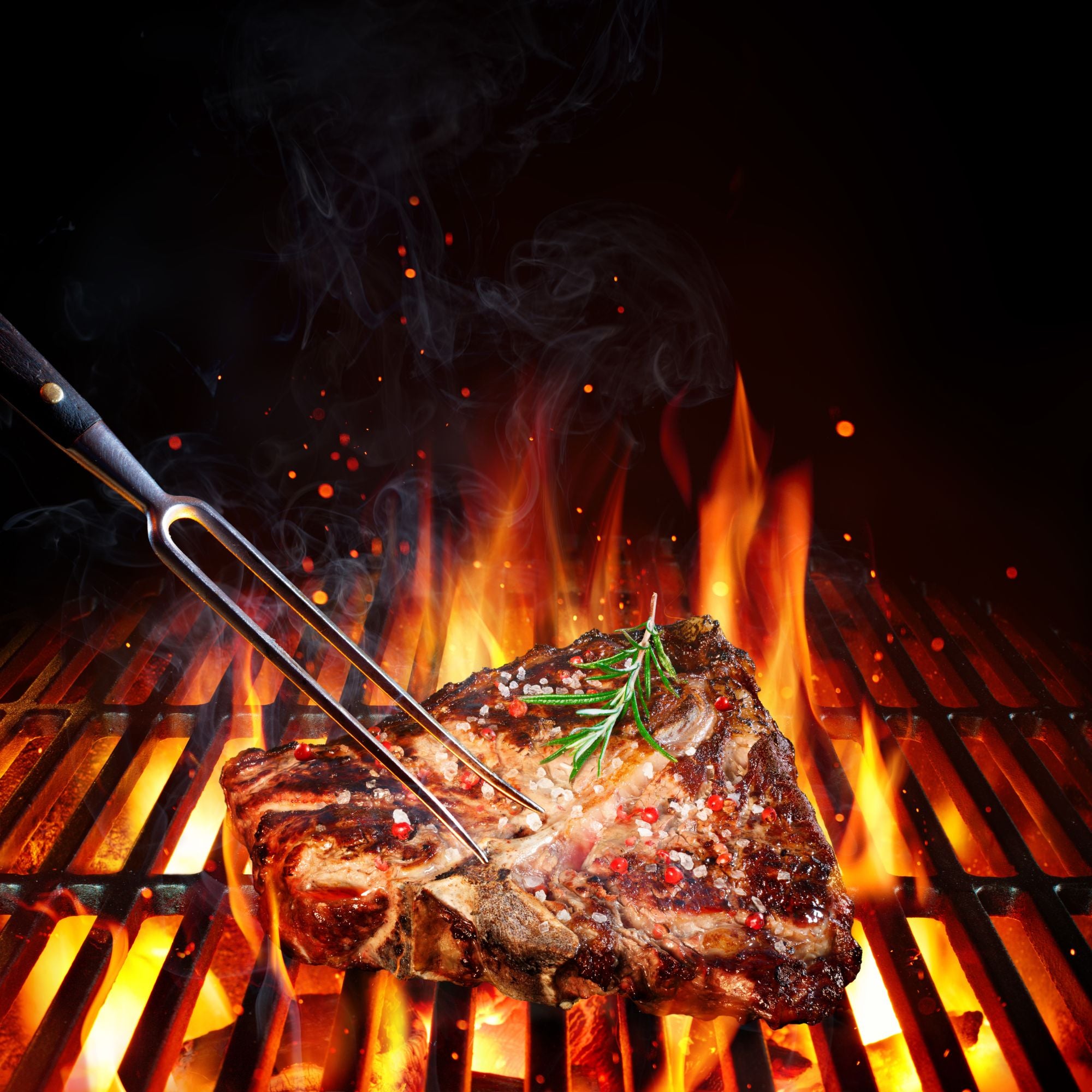Marinating American Ribeye: Aromatic Blends for Unique Flavor
American Ribeye (also known as Rib Eye or Prime Rib) is rightly referred to by many as the "Connoisseur's Steak." The cut from the front of the beef back is characterized by its distinctive fat marbling, making it especially flavorful and juicy.
A Ribeye is already a delight on its own. For purists, it needs nothing more than salt, pepper, and perhaps a bit of herb butter. However, there are good reasons to marinate a ribeye before grilling. The marinade introduces a new and surprising flavor to the meat and can even make it more tender.
Should You Marinate Ribeye?
You don't have to marinate a ribeye, but you should try it once. The marinade not only changes the flavor of the meat but also the consistency. Generally, it is said that the meat becomes more tender and thus a bit softer. With our premium meat, this last aspect is not as significant since the consistency is already juicy and tender. So, with the marinade, you mainly bring a new flavor to your steak and add variety to the table.
What Is A Steak Marinade Made Of?
A classic, liquid steak marinade always consists of the same basic ingredients. It doesn't matter which cut of meat you are preparing, be it rib eye, filet, or rump steak.
There are three components that should be included in every steak marinade: fat, acid, and spices. The ratio between fat and acid should be approximately three to one, so three parts oil to one part acid, such as vinegar.
If you want to grill and marinate ribeye, you will find various recipes further down in this article.
The Acid In A Marinade
The acid is crucial for tenderizing the meat. Even though a ribeye is already very tender, the acid component is important. The acid also ensures that the aromatic components of the marinade are absorbed by the meat. Popular acidic ingredients for a marinade include high-quality vinegar like balsamic, lime juice, or lemon juice.
The Fat Component In A Marinade
The fat in a marinade ensures that the moisture stays in the meat. It forms a protective layer around the meat, preventing the marinade's aromas from evaporating. It also helps to dissolve fat-soluble flavors and transport them into the meat. Finally, it protects the meat during frying or grilling, leaving a thin film on the surface. Typically, high-quality oils like olive oil or another vegetable oil are used as the fatty component in a marinade.
Tip: Make sure to use a heat-stable oil for marinating. Some cold-pressed vegetable oils, such as grape seed oil or safflower oil, are not suitable as they can burn during frying or grilling.
The Spices And Aromas
When it comes to spices and aromas, you can let your creativity run wild. These bring the flavor to the meat. Use herbs, spices, garlic, chili, and other flavorful ingredients such as mustard or soy sauce to taste. A touch of sweetness doesn't hurt either; American marinade recipes often include maple syrup.
Marinating Ribeye: Overnight Or How Long?
The rule of thumb for steaks is 6 hours of marinating time per 1 cm of meat thickness. You don't have to stick strictly to this; experts recommend marinating the ribeye overnight in the fridge for 8-12 hours.
If you want to marinate the ribeye overnight in the fridge, ensure that it is completely covered by the marinade.
If you don't have much time, a shorter time of 1-2 hours is also sufficient. Even in that short time, the flavors will penetrate the surface of the meat, giving it an interesting and spicy note.
Can I Marinate Ribeye For Too Long?
While an hour doesn't make a difference, you should still be careful. It's possible to marinate your steak for too long. If the meat is marinated for more than 24 hours, the texture changes negatively, potentially becoming a bit mushy.
Practical Money-Saving Tip: Marinade Meat In A Freezer Bag
You can pour the marinade into a bowl and simply place the meat in it. However, you will need enough marinade to fully cover the meat. For smaller portions, there's a trick to save valuable ingredients while still achieving excellent results.
Place the meat in a freezer bag and pour the prepared marinade over it. Gently move the meat within the bag to ensure it is evenly coated with the marinade. Squeeze out as much air as possible from the bag. Seal the bag with a clip and place it in a bowl, ensuring the steak lies flat and even.
What Else Should You Consider When Marinating Ribeye?
Never use a metal bowl. The acidic components of the marinade can react with the metal, releasing harmful substances.
Pat the ribeye thoroughly dry after marinating and before grilling.
If you marinate your ribeye and keep it in the refrigerator overnight, take it out in time to allow it to reach room temperature before cooking.
The Best Recipes For Ribeye Marinade
The preparation is always the same. Place all the ingredients in a bowl and mix thoroughly. Let the marinade rest at room temperature for about 30 minutes before adding the meat. This allows the flavors to develop best.
All ingredients are calculated for four people; adjust the quantities depending on the amount of meat.
Simple Basic Marinade:
- 1 bunch of chopped fresh parsley
- Juice and some zest of ½-1 lime
- 1-2 cloves of garlic, finely chopped
- 1 tbsp cane sugar
- Salt and pepper
- About 4-5 tbsp olive oil
Spicy Balsamic Marinade:
- 2 cloves of garlic, finely chopped
- 1 sprig of fresh thyme, finely chopped
- 1 tbsp sugar
- Salt and plenty of black pepper
- 1 tsp Worcestershire sauce
- 2 tbsp balsamic vinegar
- 6 tbsp olive oil
Asian Marinade:
- 1 piece of ginger, finely chopped
- 2 cloves of garlic, finely chopped
- 1 chili pepper, finely chopped
- Juice and some zest of one orange
- 2 tbsp mild soy sauce
- 2 tbsp maple syrup
- ½ tsp toasted sesame oil
- 4 tbsp neutral vegetable oil




Leave a comment
This site is protected by hCaptcha and the hCaptcha Privacy Policy and Terms of Service apply.